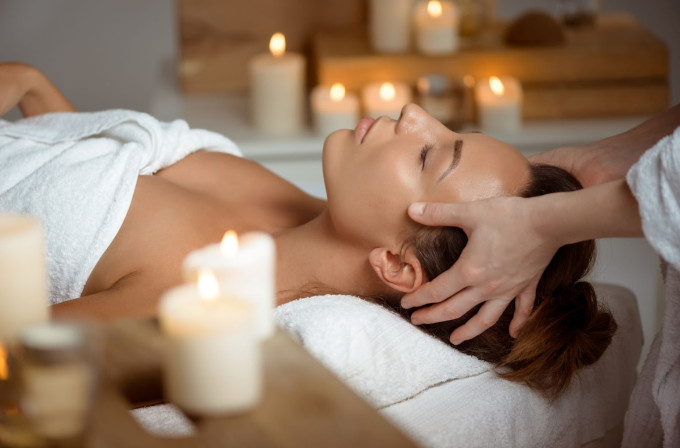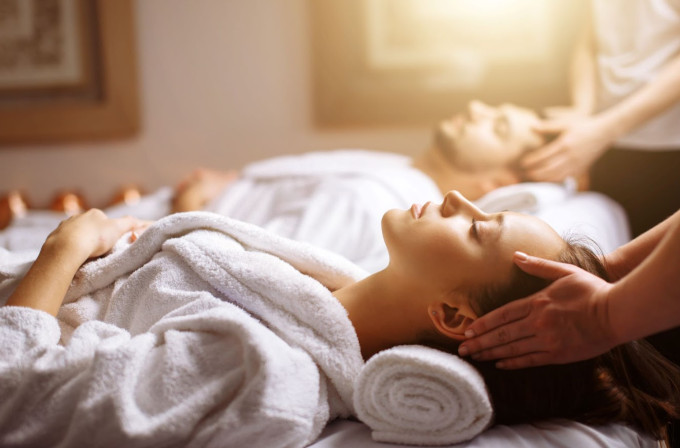
Massage therapy is an increasingly popular form of healing for many people to relieve pain, stress, and tension. Preparing for a massage can be a daunting task for those who are unfamiliar with the process. It’s essential to remember certain dos and don’ts before your massage to ensure the best experience possible.
From setting realistic expectations to understanding the importance of communication, this article aims to empower you with the knowledge needed to make your first massage a memorable and rejuvenating experience.
So, whether you’re a newcomer to massage therapy or seeking to enhance your existing knowledge, read on to discover the key steps to ensure a fulfilling and stress-relieving massage journey.
Dos Before Your Massage
Massage therapy is beneficial for relaxation and wellness. Before booking a session from a reputable spa and wellness center, such as Clover Med Spa, it’s vital to research the necessary preparations needed for each session:
- Research Your Massage Therapist
Before getting a massage, it’s vital to research the massage therapist’s credentials. A qualified practitioner should have specialized training and professional certification from an accredited organization.
Additionally, it’s recommended to check reviews or ask for referrals from other clients who have received treatment from this practitioner. This will provide insight into their skills and the level of comfort provided during sessions.
- Communicate Your Goals And Concerns
For the best possible results, conveying your massage objectives and any potential concerns is vital before booking an appointment. In general, the client and the therapist benefit from this proactive approach to massage preparation, as it ensures a clear understanding of the desired outcomes.
Additionally, clients must inform their therapists about any health conditions or medications they may be taking, as these factors could affect how the massage should be performed. Lastly, clients should express any discomfort they may experience during the massage session, enabling therapists to make necessary adjustments.
- Hydration Is Key
Hydrating before a massage is essential for promoting relaxation and maximizing the therapeutic benefits of the session. Proper hydration helps to keep the body’s muscles relaxed and supple, allowing for deeper massage pressure. It also helps flush out toxins released during the massage, reducing potential post-session soreness.
However, it’s important to remember that not all drinks are created equal when hydrating correctly. Water is always the best choice, but if you don’t enjoy drinking plain water, adding fruit or herbs like mint or ginger can make it more palatable while providing maximum hydration benefits.
- Dress Comfortably
Comfortably dressing for your massage session is an essential step in preparing for the relaxation and therapeutic benefits of the appointment. You should wear loose-fitting clothes or clothing made from breathable fabrics. This will help you easily transition between positions during your session, allowing your therapist to access the areas they need to work on.
Additionally, wearing clothing that can be easily removed when your therapist asks you to do so is helpful. If any areas require more direct contact with the skin, such as the back or neck, it may be necessary for them to be accessible without having to remove all your clothing.

Don’ts Before Your Massage
Before a massage, certain activities should be avoided to ensure the best experience. These include the following:
- Avoid Heavy Meals
To optimize the benefits of a massage, it’s advisable to avoid heavy meals that can hinder digestion and impede the relaxation process—instead, consuming light snacks or herbal teas several hours before the massage session is recommended.
Avoiding foods high in fat, protein, sugar, caffeine, or spices is crucial, as they take longer to digest and may lead to discomfort during the massage. On the other hand, having an empty stomach can also produce unease during the session due to hunger pangs or nausea.
Therefore, a balanced meal with moderate amounts of carbohydrates and proteins will be enough to provide adequate energy without causing digestive issues or discomfort during treatment.
- Skip The Caffeine And Alcohol
Consuming caffeine and alcohol before a massage session isn’t recommended, as it can interfere with relaxation. Remember that caffeine stimulates the central nervous system and causes alertness, which isn’t conducive to deep relaxation.
Additionally, alcoholic beverages can lead to dehydration, making it difficult for muscles to relax during the massage. That’s why avoiding both substances several hours before your massage appointment is best to experience optimal relaxation benefits during treatment.
- Don’t Overexert Yourself
Exerting too much energy before a massage can disrupt the relaxation process. Avoiding activities that could fatigue the body, such as heavy exercise or strenuous physical labor, is essential. Engaging in these activities before a massage can make it more difficult for the muscles to relax, reducing their effectiveness and limiting the benefits of a massage session.
Additionally, it’s recommended that people take some time to relax before their appointment mentally. Calming activities like reading or listening to music can help reduce anxiety and stress and facilitate relaxation during a massage therapy session.
- Avoid Strong Perfumes And Fragrances
Steer clear of potent perfumes and fragrances before your massage therapy session. These scents can prove distracting and disrupt the relaxation process, especially for those with sensitivities or allergies to certain fragrances.
To ensure a smooth experience, opt for a fragrance-free approach for your massage. This means refraining from using strongly scented deodorants and body sprays as well. Natural fabrics like cotton are your best choice, as they don’t trap odors like synthetic materials.
Conclusion
Preparing for your first massage involves thoughtful communication and mindful dietary choices. You set the stage for a more personalized and beneficial experience by openly discussing your goals and concerns with your therapist. These dos and don’ts, when followed diligently, not only benefit you as the client but also facilitate the work of your therapist, ensuring a satisfying and rejuvenating experience from your very first massage session.
–



